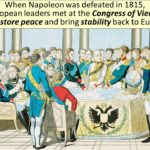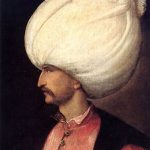Thanks to a BBC-made TV series stretching from the early Sixties to the late Seventies, a phenomenon from the Second War has become memorable. The series was written about a force of elderly men and teenage boys raised in Britain as a home defence organisation, in case of invasion by Nazi hordes.
The origin of this force of armed volunteers was undoubtedly The Territorial Army, which had existed since formation in 1921. The TA was in effect a kind of extension into adult life of the Corps system then extant in all private schools in Britain. Unpopular they may have been, but the school corps provided an insight, mostly inaccurate, into real Army life, when you are fifteen years old.
In 1939 men who had done the drudgery of Corps work at school, and followed this by a stint in the Territorial Army found getting entrance in the armed forces preparing for war with Hitler easier than those who had not. But then the Local Defence Volunteers was founded in 1940, for those chaps who had been too old at thirty-six to enroll in the regular army, and for those above or approaching pensionable age, and for those youths below eighteen. The LDV rapidly changed its name to the Home Guard, which existed until the end of 1944, when it was disbanded, much to the fury of many, and pleasure of a few spivs for whom ‘the war effort’ was a waste of time anyway.
In 1942 enlistment in the Home Guard became compulsory for whole sections of the civilian community. Whatever age you were, and whatever your excuse for not joining the ranks was, you had to do something for your country in England in 1942. You could become an air raid warning warden, or an auxiliary fireman, or a firewatcher, or you could join your local Home Guard, draw a uniform, take part in full military exercises, and be prepared to ‘die on the beaches or the landing places’. There is an ancient Saxon aggression in every Englishman, and the ranks of the Home Guard swelled with every class and type of Briton – bank managers and clerks, sixty-five year old farmers (who could supply shotguns of their own), business executives too old to be called up but very willing to stick a bayonet into a German parachutist if he could find one: schoolmasters, veterans of the First War and even the Boer War: violently-inclined boys from the slums; downy-faced Etonians and Carthusians who had hated the school Corps. Everybody came. Their wives or sweethearts were already working as ‘landgirls’ or part-time telephonists or semi-military nurses. In Great Britain war meant Total War.
There were in the Home Guard rather more than a million men in uniform by the end of 1942. The pick-helves they had originally been armed with had been replaced by the slightly more modern .303 breech-loading rifle with its lethal bayonet. Officers, who might be more than sixty years old, were armed with .45 revolvers whose recoil if used in anger with a live round might have knocked them backwards. Some of the luckier ones, especially those who had holidayed on the continent in the Twenties or Thirties might have bought a comfortable little 9 mm. Luger automatic, possession of which was ‘not permitted’, but the authorities turned a professional blind eye. A Grandfather with a 9 mm. is just as lethal as a grandfather with a -45 Webley but less likely to shoot himself in the foot.
The most intelligent (and probably the most warlike) of the Home Guard organized themselves privately into tiny resistance groups right across Britain’s countryside and towns, in case of German occupation. These groups would be used for hazardous tasks, such as the destruction of rails, trains and telegraph posts, or the murder of enemy sentries. Just because a man was seventy-five it did not mean he could not strangle an enemy with piano wire or cut his throat. A very near relation of mine was actually head of one of these secret resistance groups. As it turned out they were never used, and he returned to being the director of an industrial factory, but if there had been enemy occupation I have no doubt he would have become a resistance leader with lethal intentions.
The King and Queen of England, George VI and his sturdy Scottish wife, went about with loaded .38 Smith and Wessons strapped to their sides, and so did Winston Churchill. Seventeen-year old Princess Elizabeth became an excellent motor mechanic, working underneath stricken Army vehicles. Dukes and Marquesses, possessors of thousands of acres, formed their remaining agricultural workers into army units and armed every one. The Duke of Athol said, “Pheasants or Nazi paratroopers, they’re all the same to me!”
When Adolf Hitler was strutting about, banging his cane against his polished boots and laughing after the (suspiciously rapid) fall of France, one of his generals had advised him not to invade either Spain or England, because (he said) it was not worth it. The natural Spaniard or his Anglo-Saxon counterpart would rather die than be occupied – and one can imagine (with nervous horror) what would have occurred if Hitler had indeed tried to occupy Spain or England.
The Home Guard was disbanded. But the secret organizations within it stayed on the alert until victory over the Axis forces was declared to be absolute in 1945/6.









Leave A Comment